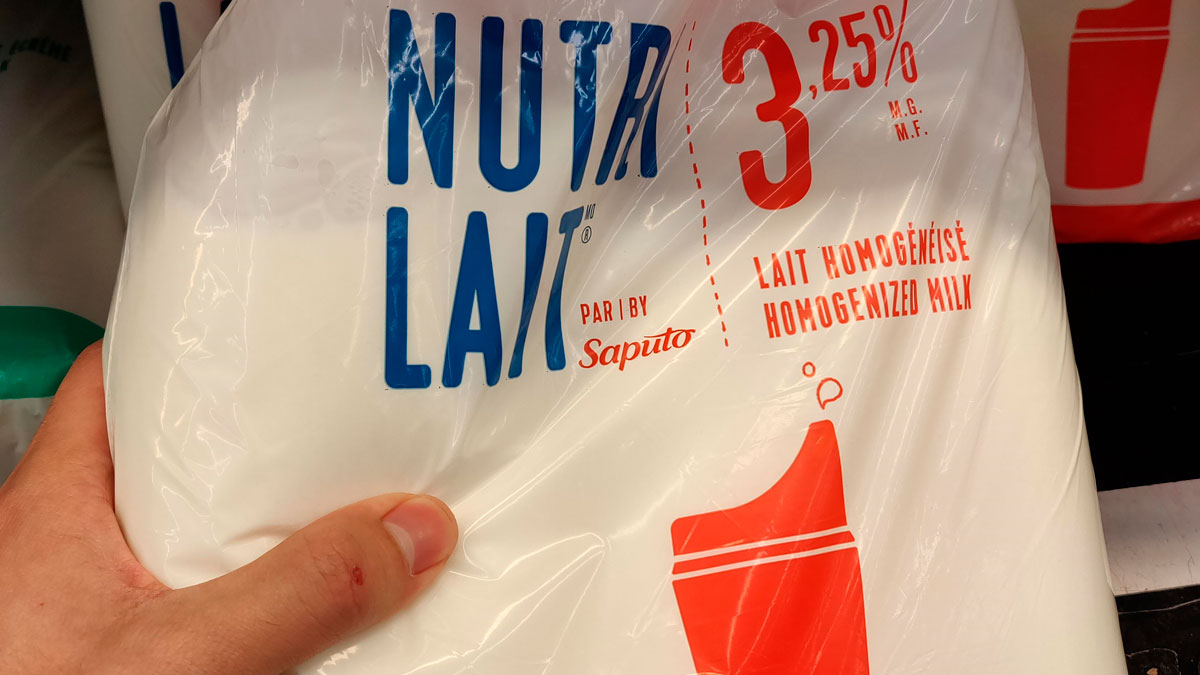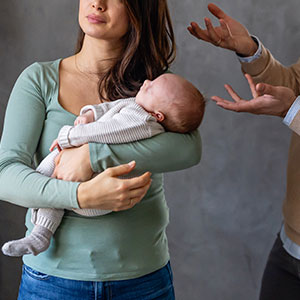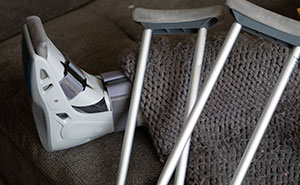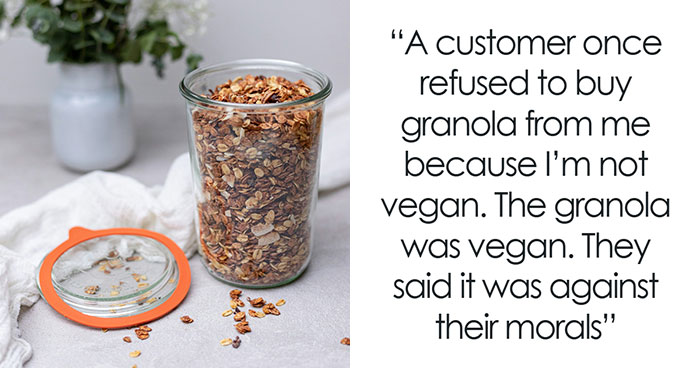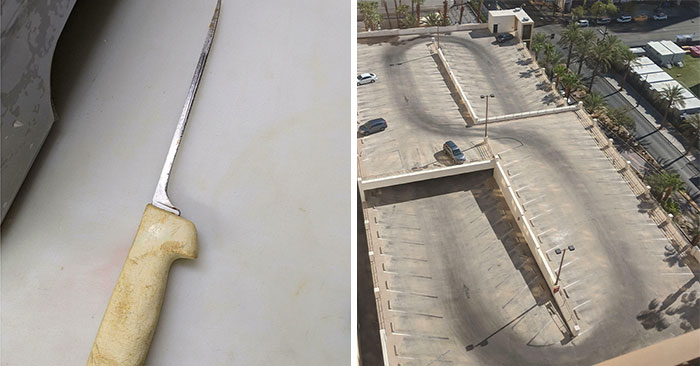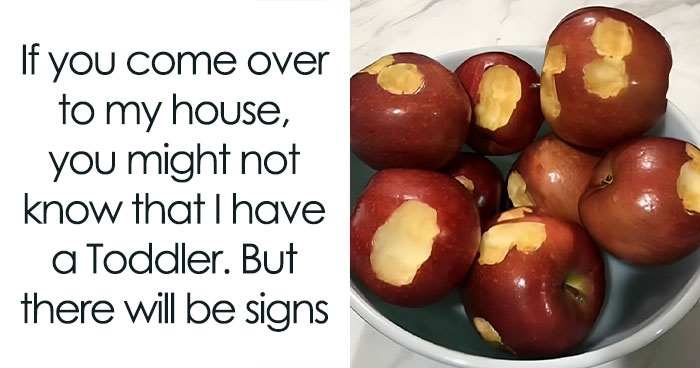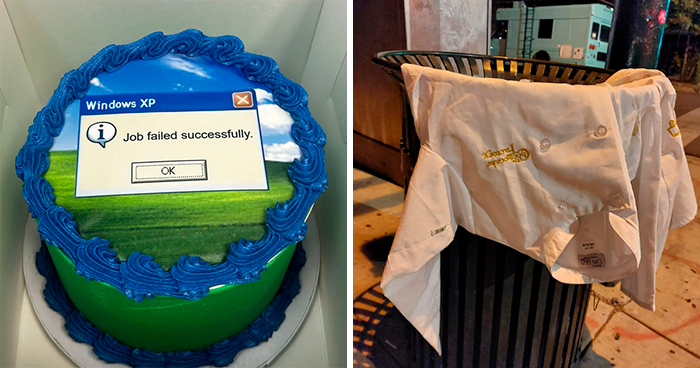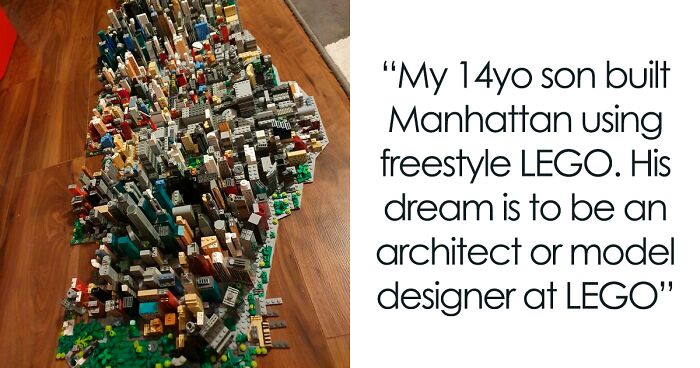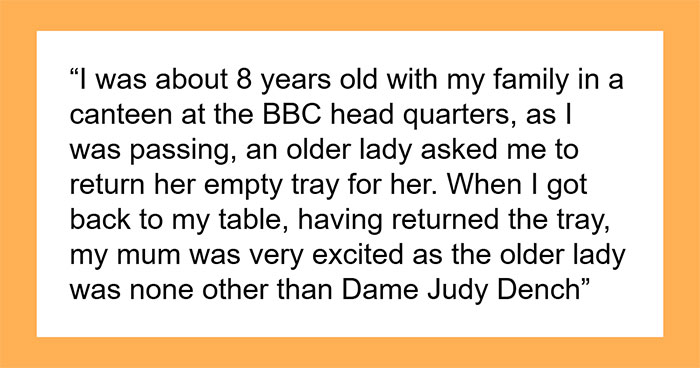Cultural diversity is a beautiful thing, and learning about traditions in other countries is always an enriching, eye-opening experience.
However, some acceptable customs in some areas of the world may be peculiar and nonsensical in others. A Quora thread tackled this, asking, “What is normal in your country but weird in the rest of the world?”
People from all over the globe chimed in, from Iceland to Uzbekistan, the UK, and Egypt, among many others. Discussions touched on mundane matters such as winter attire and more serious topics like arranged marriages and the blurred lines between patriotism and nationalism.
These are interesting reads, especially if you’re perpetually curious about the world around you. If you have unique traits from your culture, share them in the comments!
This post may include affiliate links.
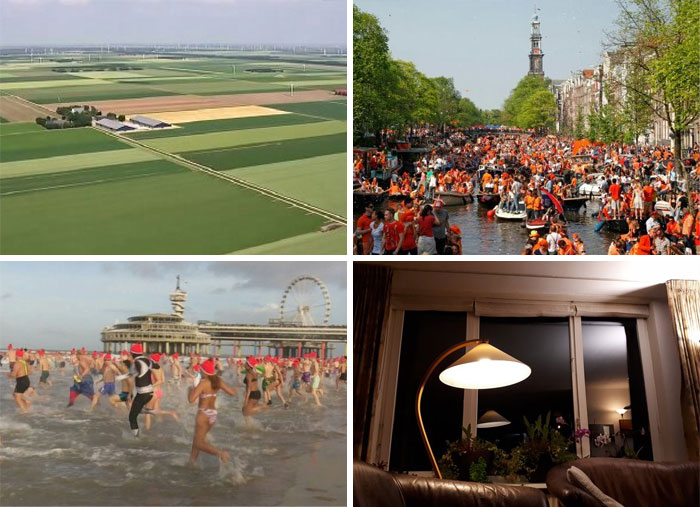 The Netherlands here.
The Netherlands here.
When we greet someone, we give each other three kisses on the cheek.
Normally, we have a calender with people's birthdays in our bathroom.
We actually celebrate second Easter day and second Christmas day, and we're working on the third.
On work and school days we bring our own lunch with us from home. Usually a slice of bread with cheese, or Nutella, or peanutbutter or chocolate sprinkles. A slice of bread with peanutbutter AND chocolate sprinkles is also an acceptable lunch.
We cycle everywhere.
When it's about 15 degrees Celsius outside, we'll wear shorts.
When we celebrate our birthday with the family, we sit in a circle.
We eat dinner at 6 o'clock.
In the summer we flee to foreign countries to escape our shitty weather. The locals go out, the tourists come in.
We’re mad about iceskating. We try to skate on, for example, the canals and the lakes every winter, even if the ice is still too thin and there’s a real chance we’ll fall through and die.
Flevoland is a province of the Netherlands we made ourselves. It used to be sea.
The Netherlands is so flat the Gods can use it as a pool table.
When someone has their birthday, we don’t only congratulate them, but also all their friends and family.
…Don’t get me started on Sinterklaas, the absolute weirdest thing we Dutchies do.
Apart from partying on the canals in orange on the king’s birthday.
We’re very tall, and we even have the tallest average height of the world! Dutch guys are 183 centimeters on average, and Dutch women 169. I am 1.80m myself (5′11″ I believe). I don’t notice this much back home, but in other countries I’m a literal giant.
We're bicycle crazy. We have about 22.5 million bicycles for 17 million people. My family is especially bicycle mad. We have 10 bicycles for 4 people. My dad has a station bike, a short distance bike, a mountainbike and a race bike; my mum has a bike you can fold, a short distance bike and a long distance bike; my sister has a bike in Amsterdam and a bike at home, and I just have my one bike. We put kids on bikes when they're about 3 years old.
The nieuwjaarsduik (the new year's dive): In the morning of the first day of January, the Dutch join each other on the beach and run into the sea to greet the new year. I have to be honest, I've never even been on the beach on January first, let alone in the sea. It's just too cold. Thousands of people do this though and a lot of people I know do too.
Our houses usually have very big windows, but we rarely close the curtains. It is rude to stare or peek in though, however tempting it may be.
I have always been interested in The Netherlands since grade school when we studied different countries other than the U. S. I believe it was 3rd grade and we each pulled a slip of paper out of the hat with the name of a country on it. That was our country for the year. We studied it and told the rest of the class about it on each holiday that was celebrated there and other interesting facts each month. That was 50 years ago!! You have just convinced me to put The Netherlands on my bucket list. I don't know why I didn't think of it sooner. You have just brought back some wonderful memories. THANK YOU!!
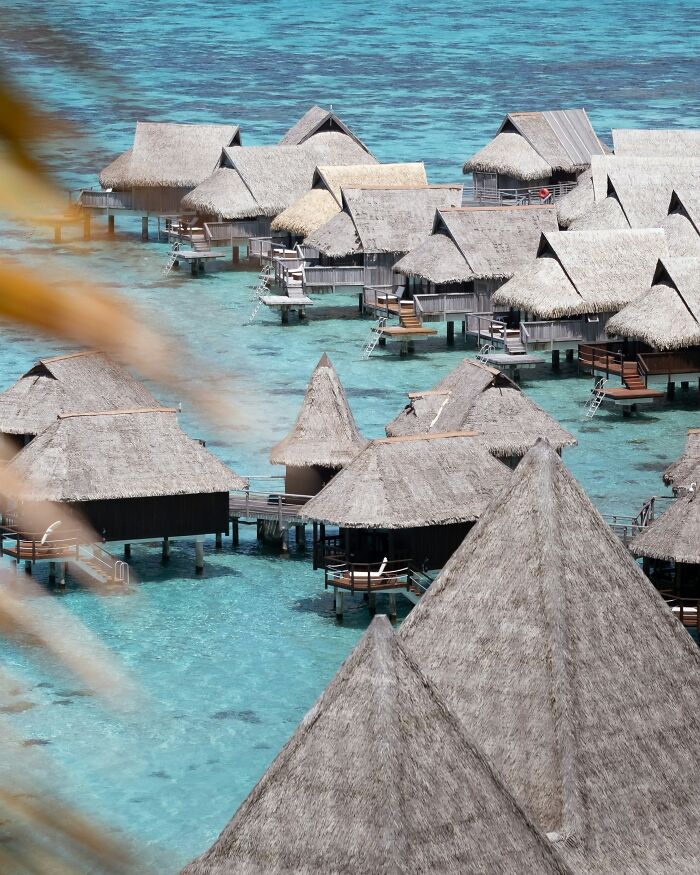 Naked children playing around “on the street”, topless women (much more braless, first), long haired men, and well accepted “trans-women” or feminized men (that we call Mahū, or several other ways).
Naked children playing around “on the street”, topless women (much more braless, first), long haired men, and well accepted “trans-women” or feminized men (that we call Mahū, or several other ways).
I come from a place called Polynesia, which is a collection of little islands and atolls, as large as Europe in scale, spread in the Pacific Ocean. This place had been colonized by several Europeans, around the 18th century, but there are many books that were written since and some behaviors still persist. And it’s good, very good.
In fact, there was no such thing as body-shaming, and when the first Europeans came there, they were mainly shocked by how free the population in Tahiti was. They were so shocked by the sexual freedom in there that they wanted to make forbidden the traditional dance that we fortunately continue pridefully today. And we have no problems teaching 5yo children to dance “as sexy” (because it is not sexual!) as this beautiful girl right there:
Although we are in the 21st century, now, when I grew up on one of those savage atolls (by savage I mean isolated and natural), I was mostly naked, but I can still see some little kids playing naked in the most isolated parts of Polynesia. Some women still live topless and the traditional dance even encourage this behavior, this lifestyle, if I can say. Also, men are free to wear whatever length of hair they want. Really, it’s even part of the culture. Longer your hair are, for a man, closer he is to his culture, Polynesian (women here love to free their long hair!).
Oh, and, something that most of the developed world had apparently a hard time to accept: feminized men. Guess what? The persons who tend to act like women while being born with male genitals are part of the society, here. They’re even considered as a whole, with their specific name, and they are well appreciated amongst women’s activities. This approval is not exclusive to Polynesia though, it happens in other places in South-Asia, like the Philippines, or in some places in South-America as well, like Brazil.
Sexuality is… clearly taken differently than many other countries, if I can say. Polynesians have a history of respect towards the nature of things and especially the Body. Its nature. Our statues still have phallic representations or our men still dance half naked (where it’s funny to see how Europeans (this happened again last week!) react to our uninhibited dances).
By the way, for those who don’t know, the word Tattoo comes from the Tahitian language (Tattoo comes from the word Tatau). So, Maōri, Polynesians, and many other Pacific Islanders like Samoans practiced the tattoo, and still today, as a way to represent their belonging to the culture, which is very far from the historical representation of the criminal the tattoo can have among the developed world.
In some way Western culture is very backward, that we associate nudity with sex and are prudish about bodies.
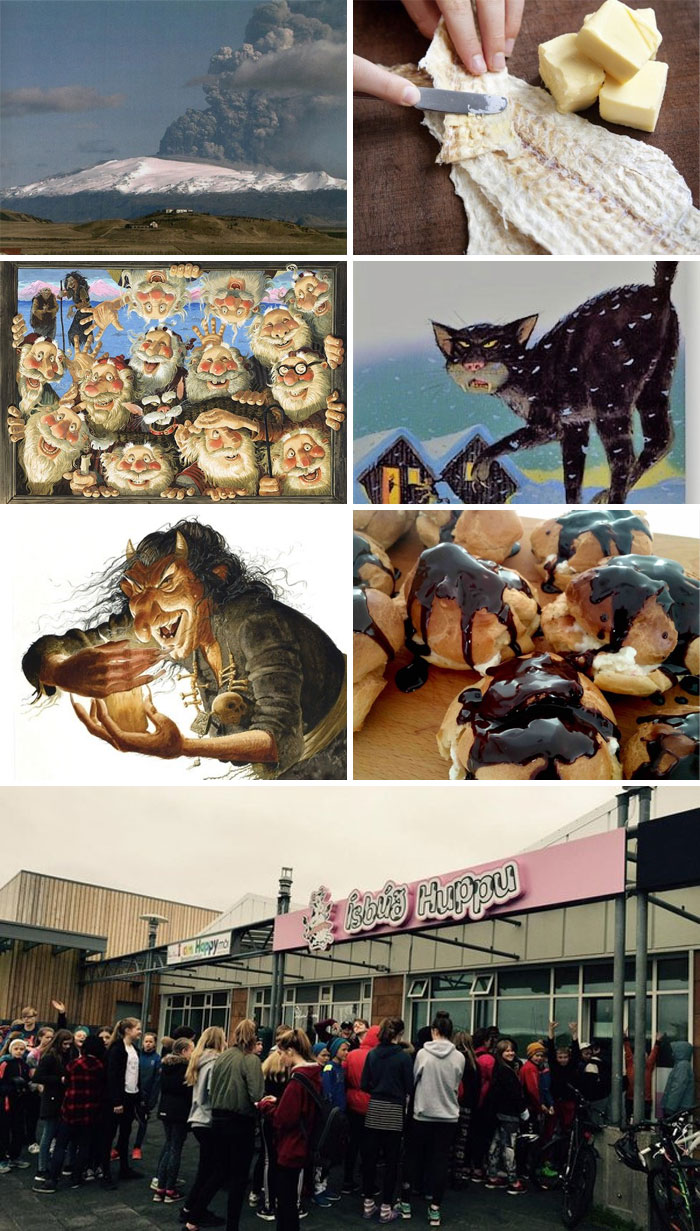 Iceland here:
Iceland here:
If it’s 10degrees or hotter outside [50 degrees Fahrenheit, for Americans] we will go out in bikinis and sunbathe.
Almost every family owns at least one summer cabin that is frequently visited.
We say ‘good morning’ or ‘good evening’ to everyone we pass on the street, depending on the time of day.
We will often have long discussions (*hem* arguments) of what type of snow is snowing at the moment.
The first real day of summer was three days ago and almost everyone took a break from work to go and enjoy it (it was around 14 degrees or something).
It snows from August to June.
All the houses are built like fortresses so they can withstand the frequent earthquakes.
We await the next volcanic eruption with excitement.
Most of us watch football religiously.
Dried fish is a delicacy.
We loudly announce when we go to the toilet and ask if we have permission to do so.
Going on dates is a formal and a rare experience, not standard at all.
Blind dates is something that doesn’t happen.
In swimming pools we wash without clothes with everyone else of the same gender, no stalls.
We drink a lot of milk —it goes with everything.
We leave our babies outside in their prams -of cafes, our homes, in the garden, in our unlocked cars.
We love sauces; we probably have hundreds of different types, also ice cream shops normally have about six different sauces.
We will have barbecues in any weather.
We drink lots of alcohol: beer, wine, you name it.
It’s never cold inside our houses, ever.
We party until way after midnight —if you are camping and want to sleep, don’t camp next to Icelanders.
Believing in elves and trolls is normal and we have tons of stories that we’ve been told about them since we were young.
We have 13 Santa Clauses.
We have a Christmas Cat that, if you don’t get new clothes for christmas, will come and eat you (particularly children).
The christmas cat is owned by a pair of trolls called Grýla and Leppalúði. they are the Santa Clauses’ parents, who are also trolls.
Grýla kidnaps, cooks and eats misbehaving children.
We have a day dedicates to eating these delicious balls of air.
The water quality is 500% and so when we visit other countries we are dying because the water tastes so bad there.
We are taught from a young age that we should never ever ever step on the moss and if you do then u deserve to burn in hell (ok maybe not but that’s the idea).
Everyone hates Justin Bieber for that music video he did. (+We had to close down the park a part of it was shot in because the tourists were tearing up the moss.)
In winter we all wear the thickest coats you’ll see while still trying to stay fashionable and we all look giant.
Conjugation is a thing so a noun has 16 different variations of itself.
Tourism is the top industry of Iceland.
Ice cream is enjoyed whenever; in a snow storm or on a rare hot day; doesn’t matter.
I love the Yule Cat (Jólakötturinn, I think, it's been a while since I was learning Icelandic) story!
I am from Iceland, and I can tell you that more than half of this is ridiculous and complete nonsense.
Iceland is a magical place and my trip there changed my perspective on how to navigate the cold months.
this sounds nice too but does it get warm i freeze in anything less than 60 degrees F
Warm summer days can reach 20–25 °C (68–77 °F). The highest temperature recorded was 30.5 °C (86.9 °F) in the Eastern fjords in 1939. Annual average sunshine hours in Reykjavík are around 1300, which is similar to towns in Scotland and Ireland. It is a stunning country. I'd highly recommend it and, no, I didn't get cold and I loved the neverending days. I might choose not to go there in the winter...
Load More Replies...I love love love Iceland lol I'm going to live here in the future :)
Language is so fascinating. When I was learning about Indigenous languages I was blown away by the amount of words they have to describe the world. The English language is so limiting in comparison. Words matter, man.
My brother and his partner were complaining recently about when they went camping in either Iceland or Sweden, that people would arrive at about 10pm, set up and then start partying. It's something that is really looked down upon in Australia, although it does happen sometimes, being loud after about 10pm in a public place like that. Most campers will get up early in the morning so they want to sleep early too.
Y'all don't just go to the water closet sans asking? If someone else is planning to go, then that makes sense. Otherwise [btw I'm from the states] that's really kindof sad. Sometimes when people act this way, it's bc of something really unfortunate. No, really.
a few things I remember of Island ... first time I was there beer was still banned ... second, one day reached 20C. Once you adapt to Icelandic climate that was sweltering ,,, and until you have been in a winter cyclone you have not lived.
Oh, I went to Iceland and no-one greeted me in the street! How disappointing. It's a truly wonderful place though, and those Icelanders I did interact with were extremely friendly and spoke excellent English. The food scene is great, they have many diverse cuisines represented, however it is, unsurprisingly, very expensive. It actually wasn't that cold; we went in January and although there was ice and snow everywhere, the temperature was warmer than that we'd just left behind in southern England. A visit to at least one of the big outdoor spas is a must, as is a driving tour of the astonishing scenery outside of Reykjavik. There are many experiences that you will not get anywhere else
That made me laugh out loud. How do I explain this to my wife? Seriously, just wonderful.
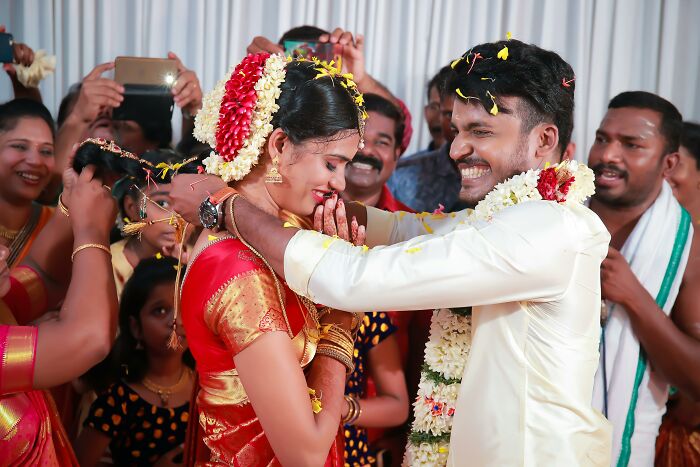 Among thousands of Indian families, young girls are either prohibited, prevented or at least discouraged by their parents from even talking to or socially interacting with boys. Then one fine day, (or rather night) she is expected to go to bed with a perfect stranger. This was normal in our country for centuries, but today, things are changing. —
Among thousands of Indian families, young girls are either prohibited, prevented or at least discouraged by their parents from even talking to or socially interacting with boys. Then one fine day, (or rather night) she is expected to go to bed with a perfect stranger. This was normal in our country for centuries, but today, things are changing. —
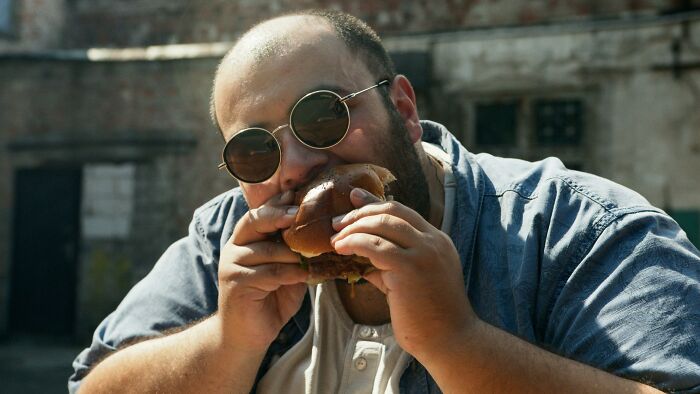 Normally we think of poverty as correlated to hunger and being skinny. In America, because unhealthy food is so cheap, poverty is actually strongly correlated to obesity. Obesity isn't uncommon in other classes either. The obesity epidemic is seen as a scourge of prosperity. It’s really, really, easy to get fat here if you aren't disciplined.
Normally we think of poverty as correlated to hunger and being skinny. In America, because unhealthy food is so cheap, poverty is actually strongly correlated to obesity. Obesity isn't uncommon in other classes either. The obesity epidemic is seen as a scourge of prosperity. It’s really, really, easy to get fat here if you aren't disciplined.
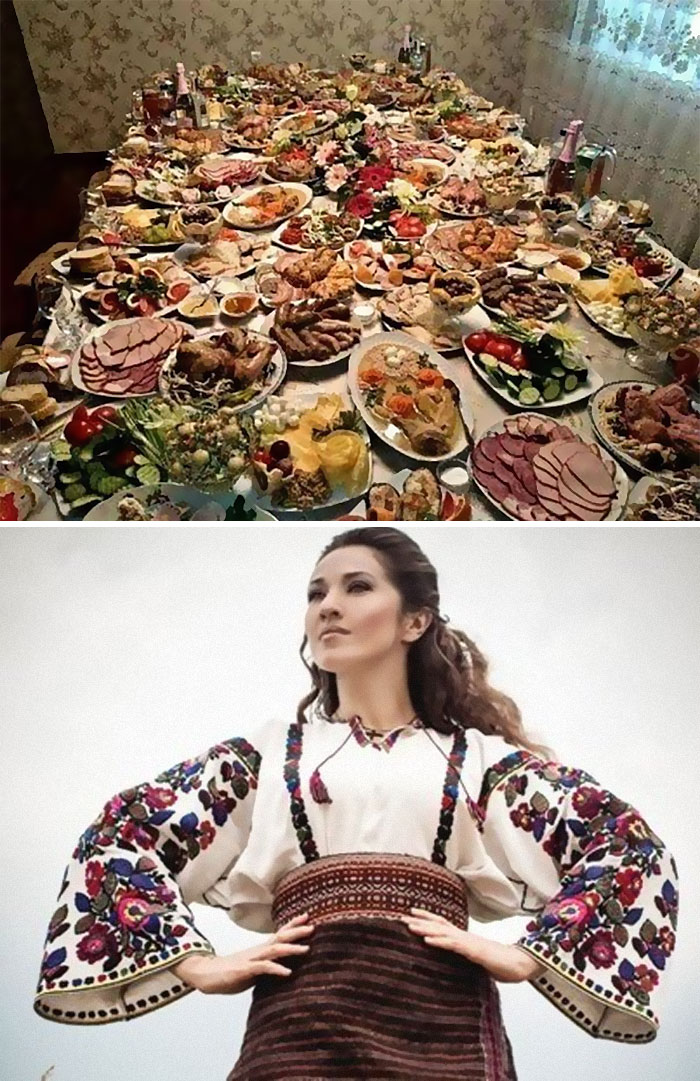 My country is Ukraine, and even though it is located in the center of Europe(geographically), we have lots of customs similar to the middle east, I will describe something what is common in my city, Lviv and in the west of Ukraine.
My country is Ukraine, and even though it is located in the center of Europe(geographically), we have lots of customs similar to the middle east, I will describe something what is common in my city, Lviv and in the west of Ukraine.
We have lots of phrases, which actually have different meaning. F.e. if guests are in the house, and you want them to leave, just suggest them a coffee of tea (that means that celebration come to the end), BUT when guests are leaving we usually play the game “oh, you are leaving so soon, stay for some longer time”.
We always invite someone for coffee, and that doesn't means the you will drink coffee. Basically that is invitation to meet up. Also it works as invitation for a date. A girl would not agree to meet up for a drink, but will happily go for coffee, even if they will drink beer.
We complain a lot about our country/city/village, but still love it to the moon and back.
We do big weddings to show off among relatives. For the same reason we repair the apartments with the best furniture.
We never swear near to older relatives, and it is not good to do something against parents, so first of all we need to prove that we are right, receive approval and only than we an act.
If lady goes to wedding, or any other family celebrations, with her boyfriend (or a guy with girlfriend) that means that their wedding is coming soon.
We play a game of the good family, on the celebrations, even if that is not true.
We cook too much food for different holidays, And I mean it TOO Much (Below is standard Ukrainian celebration) Probably that is related to big famine (Holodomor in 1932-1933)
Since you are 16, your relatives will ask you, when will you get married. If your are older than 25, they will pray for you to get married and have children :D
There are a lot of beautiful girls (I know that beauty is different for everyone, but still), girls always make up, and dress up beautifully before leaving the house, even if they go to the shop. And we used to wear high heels, we can dance all night long on the high heels and stay gorgeous.
We never drink alcohol without food, if someone does - he is alcohol addicted.
We still sing national songs, dance national dances and wear national clothes (embroider shirts) for holidays.
If I go on with the list, it will be endless :) Hope you found out something new from my writing.
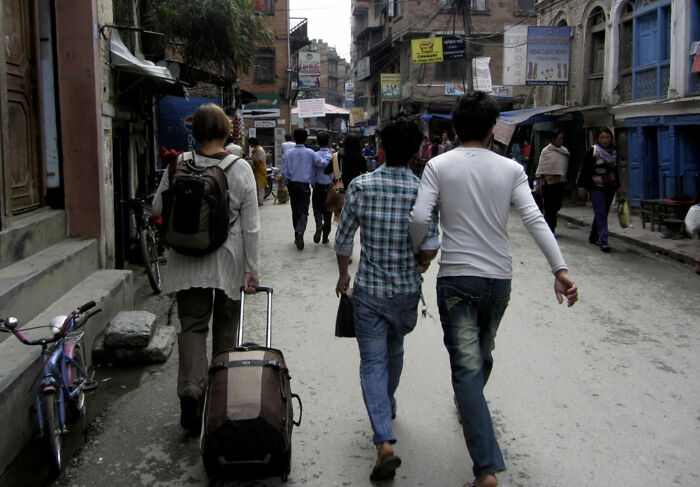 Men holding hands / placing your hand over someone’s shoulder! In India, it is common to see men hold hands. These are seen as gestures of affection, care and friendship. However, in North America and Canada , these gestures are “gay”. They mean you’re in love with “him”… Talk about a confusing world, eh?
Men holding hands / placing your hand over someone’s shoulder! In India, it is common to see men hold hands. These are seen as gestures of affection, care and friendship. However, in North America and Canada , these gestures are “gay”. They mean you’re in love with “him”… Talk about a confusing world, eh?
Affection like this between men was supposedly common in England up until Oscar Wilde's trial. Then it dropped off for fear what people maybe accused of.
 Let’s say you got invited to a Mongolian herder’s family. You arrive and meet the hosts and see a sheep outside. You play with it, take pictures and go inside the ger. While inside, the hosts prepare milk tea and some dry curds. After a while you go outside and see this: The cute sheep that was tied to outside the ger was your lunch. It was killed in your honor and you are about to eat it…. I have seen many times the shocked expression on the faces of the foreigners when they see that….
Let’s say you got invited to a Mongolian herder’s family. You arrive and meet the hosts and see a sheep outside. You play with it, take pictures and go inside the ger. While inside, the hosts prepare milk tea and some dry curds. After a while you go outside and see this: The cute sheep that was tied to outside the ger was your lunch. It was killed in your honor and you are about to eat it…. I have seen many times the shocked expression on the faces of the foreigners when they see that….
I would like to go to Mongolia, the wide, open land seems so beautiful to me.
 Greece here!!
Greece here!!
Being Greek is like harboring a very powerful virus. Once you get it, it’s yours forever and it inhabits all you do. When my family first saw “My Big Fat Greek Wedding” when it came out in theaters, no one laughed. Every so often, in the dark of the theater, my grandmother would reach across the back of the seats and smack my father before he had the chance to laugh at whatever was happening on-screen. It was funny, but not uproariously so because it’s mostly all true. If you’re Greek, you know that it’s all that matters. And you also know the following.
1. You’re skinny. At least you are when Yiayia (grandma) hasn’t seen you in approx. 7 days. Forty minutes into being at her house, once you’ve eaten homemade bread, spanakopita, cookies, ice cream, potatoes, etc., maybe you’re not so skinny since the last time she saw you.
2. You’re fat. Much more of a certainty than number one. “You look like you’ve put on a little weight… have you put on weight? Are you still doing the exercise? Oh popo…” or if you’re lucky, “Your father looks like he’s gained weight. Don’t you think he’s gained some weight? Tsk tsk. He needs to quit eating so much.”
3. If you’re not married, you might as well be dead. This seems harsh, but I actually feel like I am being pretty gentle. The disappointment in my grandmother’s face every time she remembers/knows/inquires as to the fact that my am 26 years old brother is not married, well, it never lessens. She is very good at looking like she feels a new hurt all over.
4. Your Yiayia/Papou (grandma/grandpa) is already dead, even if they’re alive. “Yiayia, I love your dress,” is a grave mistake. It’s answered, without a beat, with “Oh, you can have it when I die!”. Grandma's often knit and make many, MANY embroided table clothes, actual clothes ..etc and all that is considered your “preka" which is basically homemade stuff you'll get once you get married or your grandma or mom dies and then you'll pass it on to your children and they to theirs.
5. Your significant other is dead to your family if they don’t go to church. First question, right off the bat every time I have ever started dating anyone is “Does he go to church? Does his family go to church?” Don’t even bother saying no.
6. If YOU don’t go to church, oh my god. See #4. “I pray for you every day, koukla (dear). Who’s going to pray for you when I die??”
7. If you don’t want to have children, see #4. There is no excuse that will satisfy Yiayia. Oh, you just got a full professorship? You’re a doctor? Don’t care. Make the babies!
8. You need to know how to cook. The entire Greek arsenal cookbook. And cook it well. Men need to know how to cook the meat, and women need to know how to cook essentially everything else. How will you survive if you don’t?
9. You need to know all (and I mean ALL) of your Greek relatives. Including your third cousins who still live in Greece. Go see them! Before they die!
10. Your name only counts if it’s a saint’s name. My cousin's first name is Lauren, but not to anyone on my Greek side of the family. My great-grandmother refused to even pronounce the name Lauren. Her name, in all holy rights, is Elizabeth. My sister is Maria. My father is John (Yianni), my grandmother is Katherine (Katarina), on and on. If Jesus wouldn’t call you it, it’s not your name!
11. Real Easter is not everyone else’s ‘Easter.’ Greek Easter is almost always on a different Sunday than normal Easter, and god help us if these American schools don’t recognize it. My cousin once got a test postponed for her entire science class because the professor asked if anyone was Orthodox, making a joke. My cousin is Orthodox. Test postponed.
12. Easter eggs only get dyed red. Because Jesus said so!
13. If you get the quarter in the Vasilopita (a pie we eat at New year's Eve) you’re golden. But chances are, you won’t. However I get it almost every year and I still carry that Seran-wrapped quarter around in my wallet cause it is considered to bring good luck.
14. If you don’t say ‘Christos Anesti’ first thing as your head pops up off the pillow on Greek Easter morning, you’re in deep shit.
15. You don’t revere the actual Greeks who live in Greece right now. As Yiayia will readily yell at you, “What have the Greeks done in 2000 years?!”
16. Italians and Jewish people are your kindred spirits. Who else can yell so loud, eat so much, and scold so fiercely? No one. But don’t tell Yiayia. She thinks we are special.
17. You grew up thinking everyone toasted at holidays saying “Skinnyasses". “Stin igia mas” is Greek for “cheers”.
18. People who don’t like feta (Greek cheese) are too weird for words.
19. No matter what Yiayia is lecturing you about, she is 100% right and you are 100% wrong.
20. There is no set measuring system in Greek cooking. It’s a handful of this and a dash of that. But it better come out perfectly or you are shaming your Greek ancestors!
21. You will eat a huge breakfast at 10:30 AM and better be ready for the holiday meal at 12:30pm. Koukla (dear), you need to eat. Eat!
22. You don’t want any dessert? Here, have some baklava.
23. There is no pleasing Yiayia. There’s an old joke about a Greek son whose mother gets him two ties for Christmas. He comes down dressed for Christmas mass wearing one of the ties, and the Greek mother says “What’s the matter, you didn’t like the other tie?” (The original joke is actually about a Jewish mother, but don’t tell Yiayia.)
24. You are never hungry. Even if you want to be.
25. You are never alone. Even if you want to be.
26. You are never without guilt. You think Catholic guilt is a thing? That is some pansy stuff compared to Greek guilt.
27. Catholics think Orthodox are Catholics, too. Orthodox don’t think Catholics are Catholic.
28. As you age, you get Greeker and Greeker. For better or worse. Before you know it, you’ll be that Yiayia.
29. When you set out on a road trip, you say “ ke ipanayia mazi mas”. You basically ask for the blessing of Holy Mary so that your trip will be safe. It's kinda like “Lord be with us”.
30. You see people make the sign of the cross and in your head, you hear yourself saying, “You’re doing it wrong!” Those damn Greeks.
 In the UK:
In the UK:
Someone walks into me - I apologise.
If someone asks me to do something, I do it and then thank them.
I ask “How are you?”, I don’t want an answer, I want them to say “How are you?” and then I won’t answer either, I’ll just ask “how are you?”
Anything terrible in life (eg death, divorce, sacking) will be dealt with by making a cup of tea.
In a foreign country when I order tea and someone says - what tea? I have no idea what they mean…I want tea.
I once broke a rib on an event, working. Didn’t go to hospital until the next day, didn’t want to cause a fuss.
I have never looked a stranger directly in the eye.
Brown sauce - not what you think is brown sauce but actual brown sauce.
Single glazing, in, what is, let’s face it, very often a cold country.
My mum once wrote a letter to the milkman asking if we could reduce our order - it was 1000 words long.
I’m incredibly proud of our free healthcare system (despite being from Europe, where many countries have a free healthcare system).
Obsessed with ‘Indian’ food, except when in India, where the food is nothing like what I consider Indian food.
Would actually die for the Queen, she doesn’t think that much about me.
That’s all I can think of, off the top of my head.
the traditional British greeting of "alright" correct response is "alright" we don't actually want to know if you're alright its how we say hello. And if course the tea time alarm when it goes off no matter where you are or what you are doing you must make and drink a cup of tea. failure to do so can result in being locked up in the tower of London.
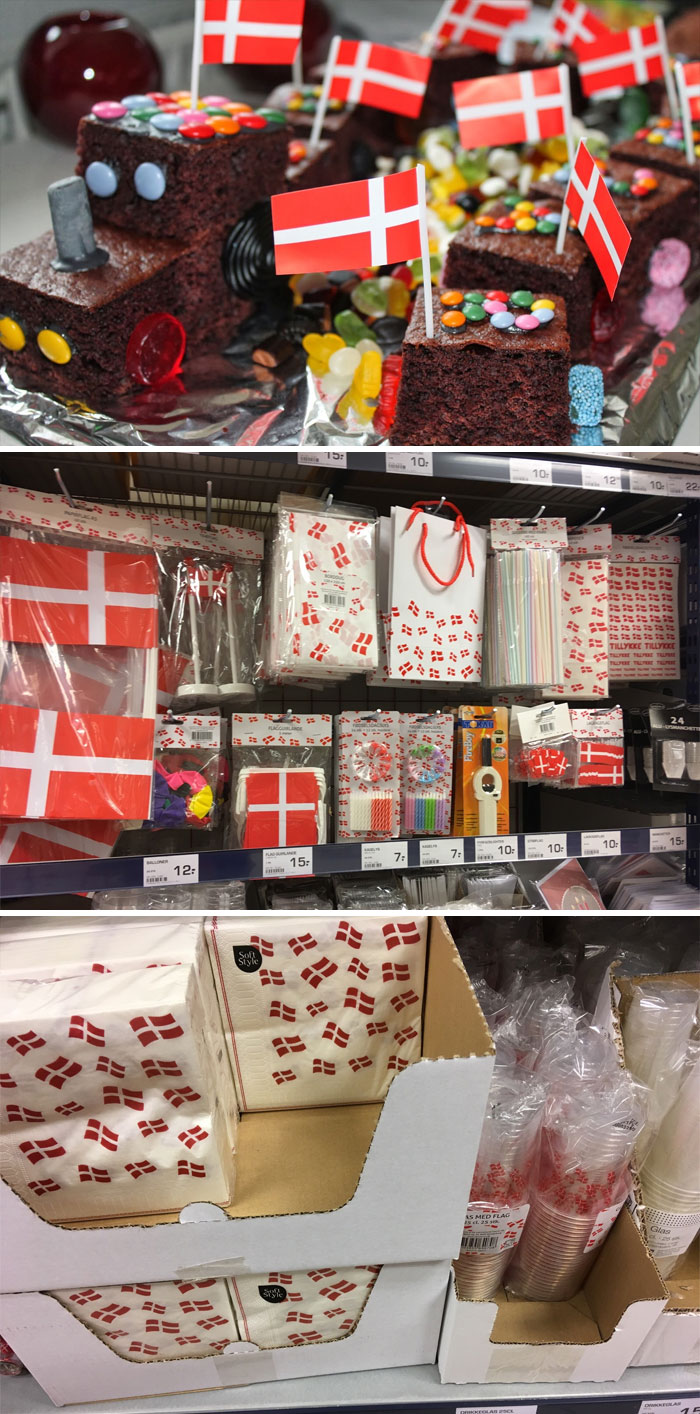 Denmark here.
Denmark here.
When celebrating a birthday, we will carelessly decorate everything around us with our national flag ("Dannebrog"). The food, the cake, the gifts, the house, the dog. Everything. My last birthday, I was woken in bed by my daughter, singing, laughing and waving the national flag in my face. I loved it.
Ask any Dane. Flags equals birthday.
Birthday cakes decorated with our national flag, "Dannebrog".
I have no clue why we do it. It's not a nationalist thing. People across the political spectrum, from far far right to far far left, will do it. I guess we just like the colors, maybe.
But it gets weirder. In other contexts, the presence of even a single national flag will cause heated arguments. A few years back, politicians of our national parliament ("Folketinget") went nuts about the sudden presence of a (albeit pretty large) national flag inside the parliament chamber. A blatant symbol of nationalism and an outrage, some parties argued. Other parties thought it looked pretty neat. A large national conservative party even adopted the flag as their logo, much to the dismay of others.
But during birthdays, each and every Dane agrees that flags are a thing. Preferably a lot of them.
It didn't really occur to me until my daughter came of age and we started watching all sorts of non-danish TV-shows and cartoons together. Naturally, sometimes a character in one of these shows/movies/whatever will celebrate his or her birthday. "But daddy, where are all the flags?" she asked me. And she was absolutely right. I saw all sorts of decorations, silly hats, beautiful cakes, colorful flowers, balloons galore and candles - but no flags. Even in content from our immediate neighboring countries, Sweden, Norway and Germany. "They forgot the flags, love," I told her. "But dad, you can't celebrate a birthday without flags!" she almost yelled.
Well, not if you're from Denmark you can't.
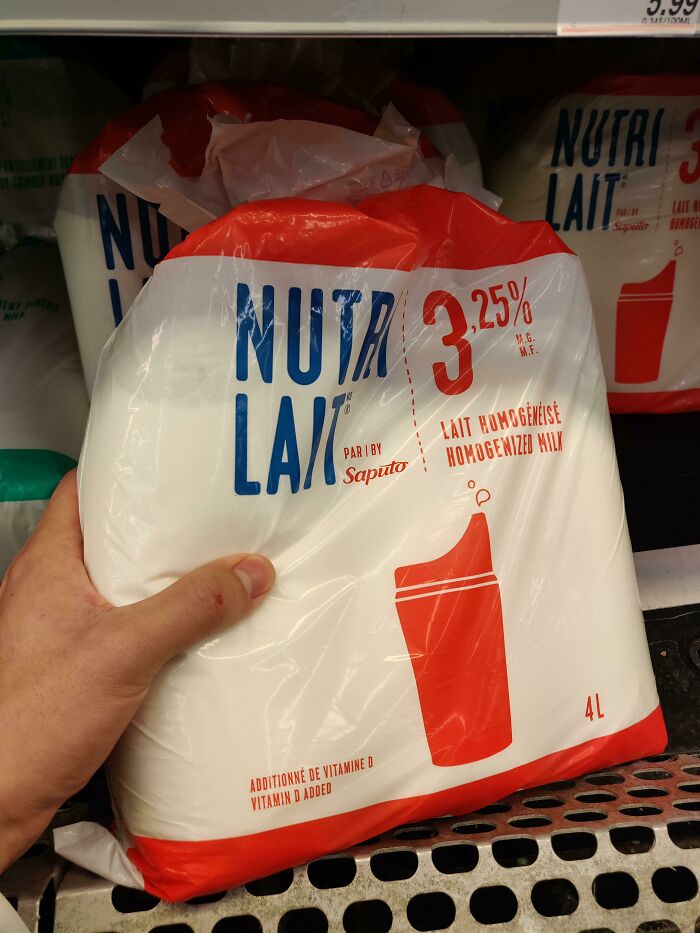 In Canada, specifically Ontario and I think Quebec, we buy our milk in bags. Funny thing is, I'm 32 and never knew this was an odd way of storing milk until just a couple years ago. Makes sense why I always saw big plastic jugs in the movies. Ha!
In Canada, specifically Ontario and I think Quebec, we buy our milk in bags. Funny thing is, I'm 32 and never knew this was an odd way of storing milk until just a couple years ago. Makes sense why I always saw big plastic jugs in the movies. Ha!
As a west coaster I would like to kindly ask everyone to understand that at least half of Canada thinks bagged milk is batshit insane.
 As an American, something normal here, but (almost) nowhere else has to be The Imperial System.
As an American, something normal here, but (almost) nowhere else has to be The Imperial System.
So, while the majority of the civilized world is using simple, universal measurements based off of 10, us Americans (and Liberians) just use inches, feet, yards, and other things that don’t make sense and are outdated.
When watching the weather forecast, we Americans see the 32 Degrees Fahrenheit and are like “Yay snow!”
All while the Canadians up North (Or East for Alaska) will say, “32 is such a random number. What’s wrong with 0 Degrees Celsius? Well, Americans.”
There was a time that a $327 million space program designed to orbit Mars was destroyed just because the scientists were using because its altitude-control system used imperial units but its navigation software used metric units.
I feel bad for when people from other countries have to convert the Metric system to a far less optimal measurement system just because us Americans can be too stubborn to round to 10.
If the British invented the Imperial system, but later switched to the Metric system - why can’t we (Americans) do so too?
It’s just one of the myriad reasons other countries think we’re weird.
American cowboys will never exchange their ten-gallon hats for 37.85412-litre hats.
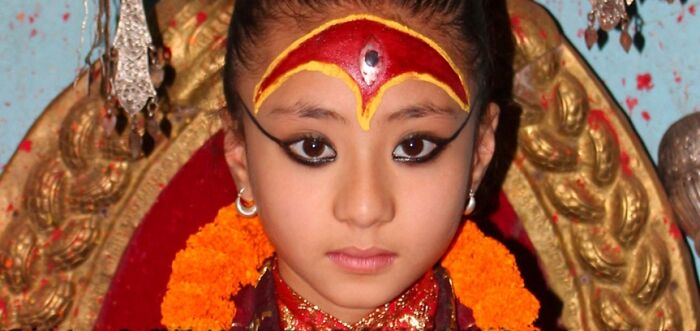 There are a lot of things that are quite unique in Nepal, but this one is particularly interesting.
There are a lot of things that are quite unique in Nepal, but this one is particularly interesting.
You can see living goddess in Nepal called Kumari.
There is a tradition of worshiping young girls who are yet to reach the puberty as the incarnation of Hindu goddess Durga who is considered as the indication of divine female energy. Young girls from, Kathmandu’s Newar community, Shakya or Bajracharya are chosen as Kumari by a committee. It is a privilege to have your daughter contest in this selection process.
Before chosen as Kumari the girls are tested for 32 very specific physical attributes, including “eyelashes like a cow,” “thighs like a deer,” “Mona Lisa Like Smile” and a “voice as clear as a duck.” She is also put through a secret test for signs of fearlessness and serenity.
Kumari lives with her father and mother, who left their jobs to become her full-time caretakers. The Kumari is not allowed to leave her place of residence except for some Holy festivals and her feet are never supposed to touch ground. She is carried everywhere, even inside her home.
Kumari are not Kumaris for life. Once they hit puberty they are forced to return to life as a normal human being.
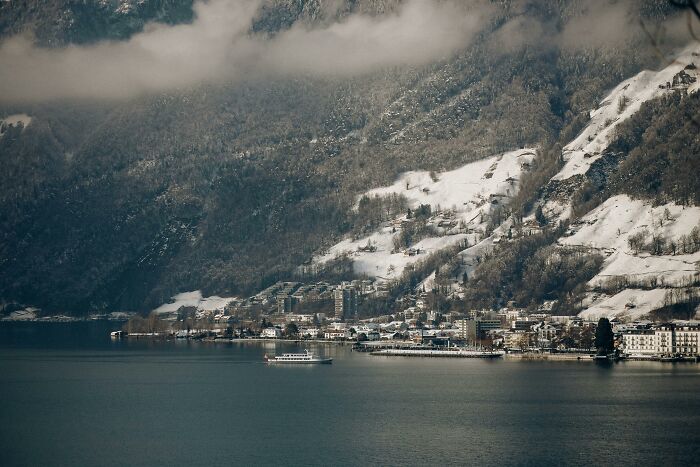 It may not be my country but I’ve lived in Montreux, Switzerland for 7 years now and there’s a few curious things to me that are seemingly normal here.
It may not be my country but I’ve lived in Montreux, Switzerland for 7 years now and there’s a few curious things to me that are seemingly normal here.
Here are 5 weird things I see in Switzerland as an immigrant…
Snitching - on literally anything!
There is a culture of snitching in Switzerland. It goes along with little laws that have been made up to make society more agreeable. For example, my teacher left her car parked for 2 days once in the same spot, so someone called the police because it was suspicious. It was a relatively new, unscratched car as well! It’s completely socially acceptable to snitch on others if you see something wrong - no guilt attached, and no hard feelings afterwards.
Saying you’re going to the beach, but actually going to the lake.
In Montreux we don’t have a sea - Switzerland is a landlocked county. However, we do have a gorgeous lake called Lake Geneva, and the area is called (half jokingly!) the Swiss riviera. In the summer when it’s hot, you’ll often get invited to go to the beach. There are little parks and rocky beaches along the lake. It’s weird to me coming from a little Island where we have many actual beaches, but completely normal here!
Paying CHF15 (equivalent of 15 dollars) for a cocktail.
Switzerland is notoriously expensive. It’s pretty normal to pay upwards of 6 CHF for beer, and 15 CHF for a cocktail. This is regular where I am. The funny thing is, even people who have relatively low incomes seem to have no issue paying up - it’s just accepted. You want that? This is the price.
Drinking water straight out of any random fountain you find on the street.
In most areas I’ve been in Switzerland, there are fountains, both for decoration and also for drinking purposes. It’s completely normal to stop by and stick your head under the tap to take a drink. These fountains not only taste amazing (by taste I mean they’re fresh and cold year round and genuinely feel nice to drink from), but are also checked every 2 weeks for ph levels etc. I’ve seen fountains closed when they’re deemed even slightly off before. You can more or less guarantee what you’re drinking is as pure as it gets.
Taking the train everywhere!
Don’t get me wrong, people do own cars and they do drive in Switzerland. However, often the train is the best option. Instead of driving 2 hours to another city (Lausanne to Zurich for example), why not take the equivalent train route? The trains in Switzerland run to the minute, and are surprisingly inexpensive when compared with other countries. My train pass takes me from where I live above Montreux to school in Lausanne for about 1500 chf per year, about 400 chf of which we recollect from ‘communal incentives’ (kind of like a tax rebate but from your local ‘commune’, which is a sort of town council - rebates also offered on purchases like electric bikes and a number of other things). To put it in perspective the total amount I would spend annually on this journey would be closer to 6000 if I did not have the pass, so it’s a bloody good deal if you ask me! (The distance between where I live and lausanne is about 30km, and costs about 7.80 chf per journey. The trains here are the cheaper, more efficient option in most cases, and you can always rely on local public transport when you arrive at your destination.
Hope this has been an interesting read! If you have any questions or have visited Switzerland yourself, I’d love to hear your opinions! Do get in touch…
Switzerland is a lovely place to live healthcare beautiful scenery and the flag is a big plus
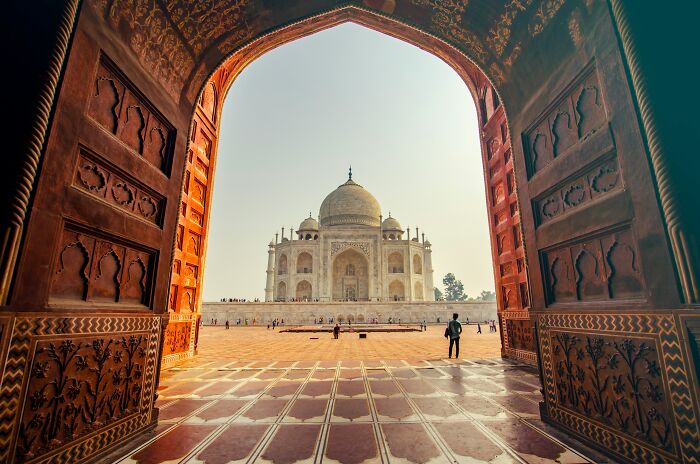 Dowry
Dowry
Fraudulent Saints
Making temples for celebrities
Cow in the middle of the road
Confusion between patriotism & nationalism
A flood in one part and a famine in another
Student suicides
Trains delayed by more than its running time
An angry anchor on prime time
Free internet but no free education
Mass production of engineers
Taking offence for no reason at all
Lack of political know-how
Capturing of poll booths
Arranged Marriages
Invisible law system for the rich
Vehicles on footpath
Elections 365*7 in some part of the country
Brain Drain
Misinterpretation of Feminism
Roadies
Politicians who never took sex education
Reservation system based on caste
Honour k**ling
Biased media
The list is long but at least we didn’t donate money to a girl so that she could become the youngest billionaire. We believe in corruption only!
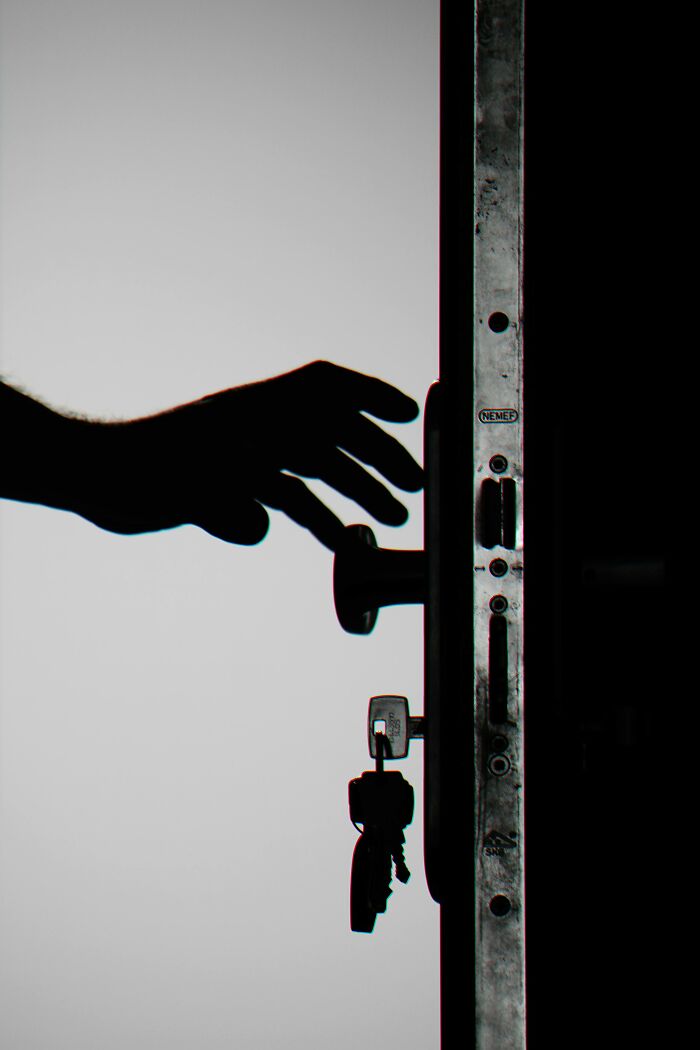 Pakistani here.
Pakistani here.
1- Same sex people can hold hands in public. It is a sign of friendship among boys or girls.
2- If you go to your relative's house and the door is open then you don't bother to knock it.
3- Doctors don't write the formula of the medicine on their description rather they write pharmaceutical company name. In addition doctors inject injection on hips without removing the clothes.
4- Shooting in air by using light and heavy weapons like AK47 on weddings and other occasions.
5- Arranged marriages and marriage with first cousins. E.g; when I was 15 years old I came to know that I'm already engaged with my first cousin.
6- People like to touch and to be touched. Touching your shoulder while talking is considered as a warm relationship.
7- You can't leave your parents. You're supposed to stay with them until their last day on earth. Leaving your parent's house is usually frowned upon.
Some myths which are deeply rooted in Pakistani society are
1- If a black cat cut your way a bad thing is about to happen same is true for breaking of mirror.
2- If the first customer leaves the shop without buying anything it is considered bad luck. So the shopkeeper will reduce the price if you're the first customer.
3- Don't wear black suit in thunderstorms or get hit by lightning.
4- Ghosts are attracted by the people who use perfumes.
5- If you walk over a growing child who's lying flat on the earth his growth will stop.
6- It is widely believed that One drop of Semen is equivalent in energy to 100 drops of blood.
Alright guys Thanks for taking your time to read my answer.
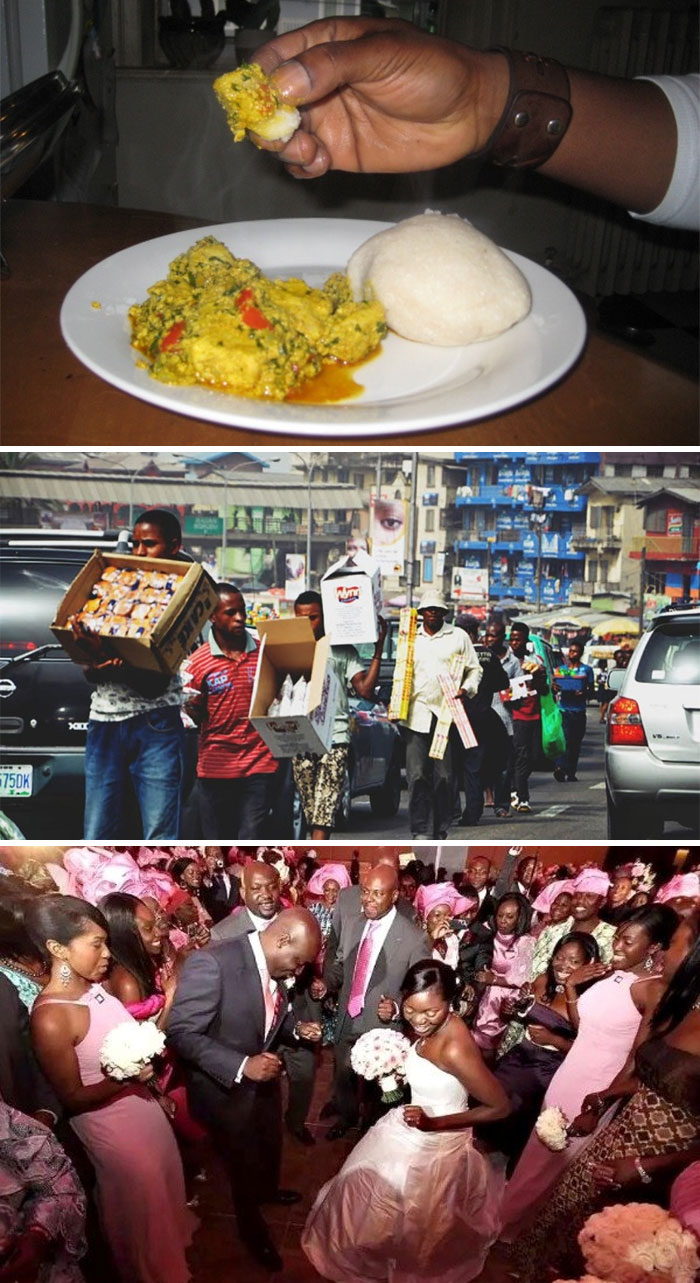 Nigeria is a great country with over 500 tribes and languages.
Nigeria is a great country with over 500 tribes and languages.
There are so many things we do that would be considered weird by other countries.
Let me give you just 3 main norms in Nigeria that are weird in other countries.
1. EATING WITH OUR HANDS.
In Nigerian we love to eat out indigenous foods with our hands.
It may seem weird in many countries but we enjoy it here.
2. HAWKING
In Nigeria hawking is a norm and its now part of our lives.
We do buy things on the bus in traffic from hawkers and they really help because you can't stay in traffic for an hour with all the heat and smoke without wanting water.
3. YOU HAVE TO UNDERGO ALL THREE TYPES MARRIAGES BEFORE YOU GO HOME WITH YOUR WIFE.
Before you go home with your wife you have to undergo these three types of marriages before going home with your wife in nigeria:
TRADITIONAL MARRIAGE:
This is a must in Nigeria, without seeing the parents and doing all necessary things in the village of the bride YOU CAN'T GET MARRIED TO A NIGERIAN LADY, The most important aspect of it is the "PAYING OF BRIDE PRICE",
COURT WEDDING:
You have to get your marriage certificate from the court so this one is a must in Nigeria too.
You have to make your marriage legal (Recognised by the Government)
WHITE WEDDING:
Due to how Religious we are in Nigeria we always make sure every couple gets married in the church or mosque.
Now we also after the religious rites have been performed and completed, we move into the second aspect of the white wedding
THE RECEPTION.
This is where we eat and dance and celebrate because after this last set of marriage the Groom can now take the bride home.
All these Norms makes NIGERIA unique and special despite all political difficulties and challenges.
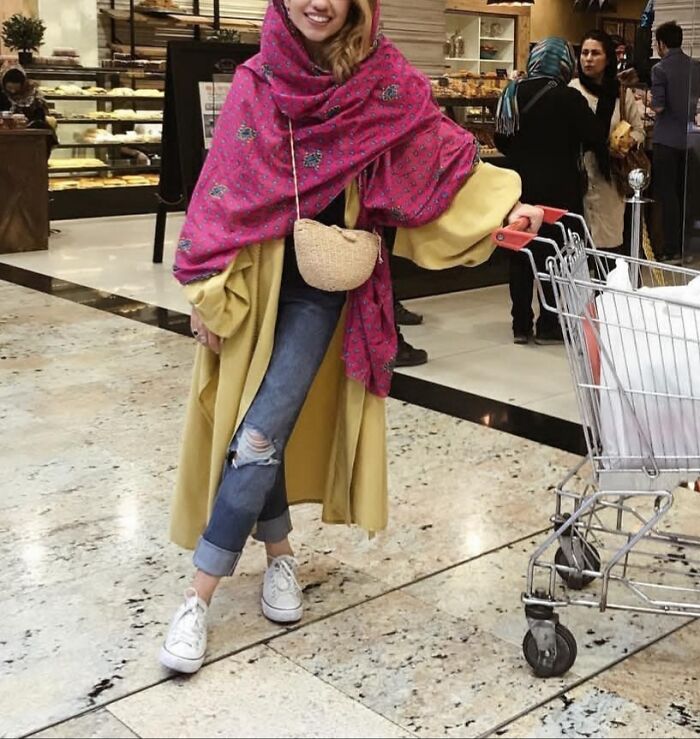 As an Iranian, I think there are many laws and traditions in my country that sounds unbelievable to the rest of the world:
As an Iranian, I think there are many laws and traditions in my country that sounds unbelievable to the rest of the world:
Compulsory Hijab: The first thing you notice when you enter Iran is every female has her hair covered. The coverage can be done with a scarf, shawl, or chador. Unlike other Muslim countries, Burka not common in Iran. If you take off your headscarf in public/wear revealing clothes, you might get arrested by the morality police. This law seems unfair to Iranian women as much as it seems to the rest of the world, but they just can't do anything about it, except being fashionable even with the restrictions. There are other laws that take away their freedom even more, like not allowing them to sing solo, or enter the stadiums.
Nose jobs: Tehran is called the capital of rhinoplasty, and every person living in Tehran knows at least one person in family or friends who has done it.
Kallé Paché: A traditional Iranian food wich is made by boiling the head (kallé) and legs (Paché) of a sheep. It smells and looks disgusting but it is actually very delicious!
Relationship and marriage laws: families are strict when it comes to relationship. They expect girls to keep their virginity before marriage. The groom's family promise to dedicate an amount of money as “mehria” to the bride so that she has a financial support in case of a divorce. Another thing that sounds wierd is the “marriage loan” , which is given to just married couples to help them with buying a house or with the ceremony.
Iran has many other traditions and laws that are in common with other Islamic countries. However, It also has cool traditional clothes, foods and arts which are not weird but beautiful.
I think Iran is the only country which media has focused on its differences and Islamic laws this much. In fact, the most weird thing about Iran to the world is that when they visit Iran, they realize that Iran is not as weird as they thought it is.
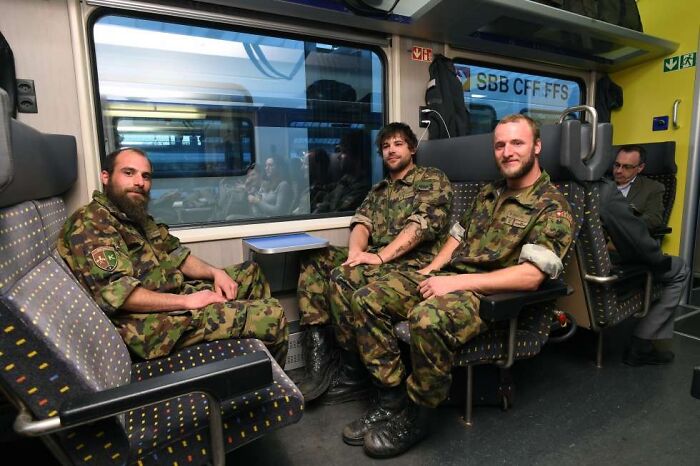 In Switzerland, every young man has to go to do Military service. You often see guys like that in trains, with their guns on the seat next to them. It’s the most normal thing here. The guys usually travel back to their families and have to bring all their things. It actually is very dangerous, because some leave their guns unattended when they go to the bathroom, but I don’t think anything ever happened.
In Switzerland, every young man has to go to do Military service. You often see guys like that in trains, with their guns on the seat next to them. It’s the most normal thing here. The guys usually travel back to their families and have to bring all their things. It actually is very dangerous, because some leave their guns unattended when they go to the bathroom, but I don’t think anything ever happened.
Typically a Swiss man does a week or two of service each year, and they need to bring their weapon with them. It may have changed now but it used to be that they would not be in uniform when travelling to and from their barracks, so yeah, I guy in civilian clothing getting on the tram with an assault rifle slung over his shoulder was pretty weird the first time I saw it in Basel around 20 years ago. The guns are not loaded though, and they don't carry any ammunition with them.
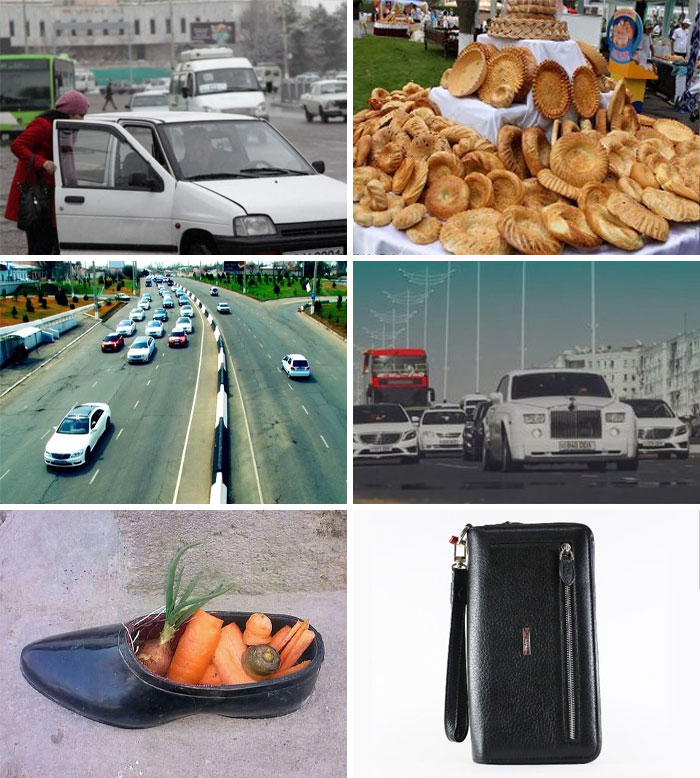 In Uzbekistan:
In Uzbekistan:
1. It is normal to lift your hand and any car becomes a taxi.
In fact, most of the people prefer this. Because $1 can get you a 10–20 km ride.
2. I think we eat too much bread.
People eat bread with anything. You name it. Rice with bread. Tea with bread. Dumplings with bread. Bread with bread. As a child I used to eat bread with coke ( like you do Oreos with milk). I quit eating bread but my family still buys 5 loaves of bread a day.
3. If it is too hot outside and you want to cool down. Drink hot tea.
It's a tradition, if there is no tea on the table, then none will enjoy their food. Morning - Drink Tea, Afternoon - Drink Tea, You met your friend? Drink Tea, You have a headache? Drink Tea, You want to drink cold stuff? Drink Leftover Tea. Basically, the Uzbek body has more tea than blood. Indians need chilli(or spices), Uzbeks need tea. Oh I almost forgot, some old women gift tea packs when they visit someone.
4. You need to rent limos for your wedding.
A bus too, if you want to impress. If you can't afford, then take a loan. One car should cost you around $100. Your salary? Maybe $200–300. But hey, you get married once (maybe twice, the third time you don't need these), you and your wife can repay the debts after the wedding.
5. You want to get married but you're shy to tell your parents to find a girl for you? No, problemo. We have the perfect solution.
We still have the culture of arrange marriage. Suppose, I am not in a relationship and want to get married through an arrange marriage. Then I will put the carrot in my father's shoe, this will mean that it's time for his son to get married. Or “yo father, I need a wife, please tell mom to find one”.
This was a common thing in the past because people couldn't open up to their parents(controlling parents or dictator parents) as much as we can today.
6. Guys carry purse-like-wallets.
If you dont have one of this, you're not the cool guy. I guess I will never be :(
7. 90+ percent singers lip sync in their concert shows. Even their banners have this disclaimer: Fonogramma Orqali Ijro Etiladi.
It means: The singer will lip sync throughout the concert. Maybe once in a while they may shout “ahha” “ohho”, “everyone together”, “I can't hear you all” but nothing more than that.
I don't understand why people go to such concerts. Is it fun to watch someone lip syncing? Worst part - everyone will be sitting as if they were watching a movie.
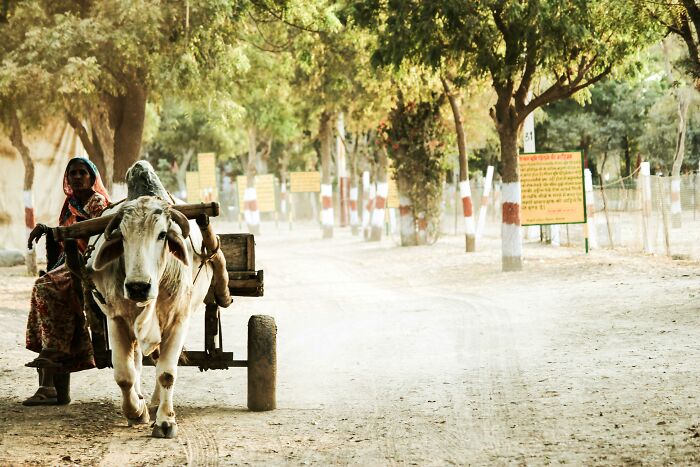 In my country,
In my country,
If I see a girl younger than me
I call her bahini(younger sister),
If i see a girl elder than me I call her didi (elder sister)
If I see a guy younger than me
I call him bhai(younger brother)
If I see a guy elder than me
I call him dai (elder brother) Unless I have crush on him,
If I see a woman of her age
I call her aunt.
If I see a man of his age
I call him uncle
If I see an old woman like her
I call her hajuraaama( Grandmom)
If I see an old man like him
I call him hajurbuwa (Grandfather)
I call all people either brother, sister, grandmother, grandfather, aunt or uncle irrespective of whether I have any kind of relationship with them or they are complete stranger to me instead of sir, madam,mr., mrs. etc.
You see, that’s what normal in my country but not so normal in other countries except India .
AND
Venerate and beatify the dogs as god maybe?
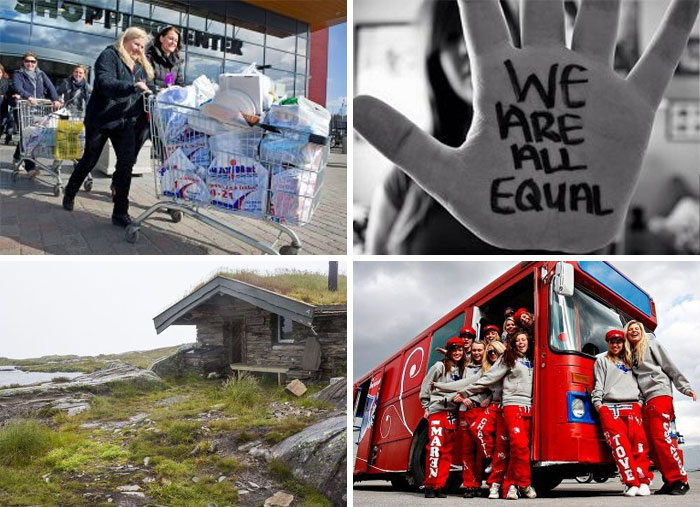 Yes, I must admit that we do have some strange habits.
Yes, I must admit that we do have some strange habits.
#1 Priorities.
Most Norwegians don’t mind spending 2 minutes sending an sms to bid for an apartment 300.000 NOK (about 35.000 USD) over the tagged price, but they will drive several hundred kilometers in a day to Sweden in order to buy a bottle of wine 50 NOK (about 6 USD) cheaper than what it would have costed in their own country.
#2 Janteloven (Law of Jante).
Whatever achievement you managed to make yourself proud of (dived at 12 meters deep, skied for more than 10 km, swam 3 km) there will always be a Norwegian around to let you know he/she did double or triple that “achievement”, and repeats it every week. Janteloven says they can’t say they are better than everyone else so they find other ways to do exactly that: tell you how much better they are than you.
#3 Honesty.
Unlike in the rest of the world, Norwegians will leave you the keys to a remote little wooden hut and expect you to be honest, write down your name to receive the bill for the nights you stayed there and clean behind you for the next people coming. This is, I believe, the most marvellous strange thing Norwegians do.
#4 Party hard for a month…just before your exams.
Foreign fans of the SKAM cult tv-series may have caught on to the fact that Norwegian high-school students are crazy about buses. In (rich areas of) the larger cities a graduation tradition has emerged where students group together to buy—buy—a bus, bling it up in the year leading up to graduation, and drive around and party in it during graduation celebrations. This period of celebrations—true of many Norwegian high-school students who partake—takes place throughout the month before exams begin.
Apparently, the decision to put the celebration a month before exams is quite rational: this allows students to get back to studying with enough time to do well. However, with the whole month now dedicated to drinking for many, it’s fair to say that that idea isn’t what was originally envisioned.
Also, students wear the same pair of red dungarees during the entire month and are not supposed to wash them. The whole thing climaxes on the National Day, where the red russe-students often walk in the parade looking suspiciously worn out.
I will quote Christina Applegate (as Kelly Bundy) in the TV series Married with Children. "I don't know anything about Norwegians. I've never been to Norwegia."
 In Indonesia
In Indonesia
Using vehicles (cars/motors) just for a short distances that could be walkable (even less than 500 m).
For toilets, we don’t use tissue. We use water to clean it.
If you’re having a birthday and invite a group of friends, you choose a restaurant. No, they don’t pay for your birthday. YOU pay for all the restaurant expenses.
It’s normal whenever you go on holiday and your friends request oleh-oleh (souvenirs) as a sign that you are their friend.
People can use the road in front of their house for events such as birthdays and weddings (as if it’s their own road).
Some foods are appropriately eaten by hand. Of course, you have to wash your hand.
When we greet someone, we kiss them in the cheek with our cheek or we kiss them on the hand.
Being a busybody on your friends’ family, or neighbors’ affairs. Such things would be unthinkable in societies where privacy is valued.
Among the Minang people, there is a tradition of merantau (literally migrating) to different parts of the country so they can be “someone”. In other words, to be successful and return when you are already such.
Using a bolster to help us sleep. Literally every Indonesian has these in their house and can’t sleep without one.
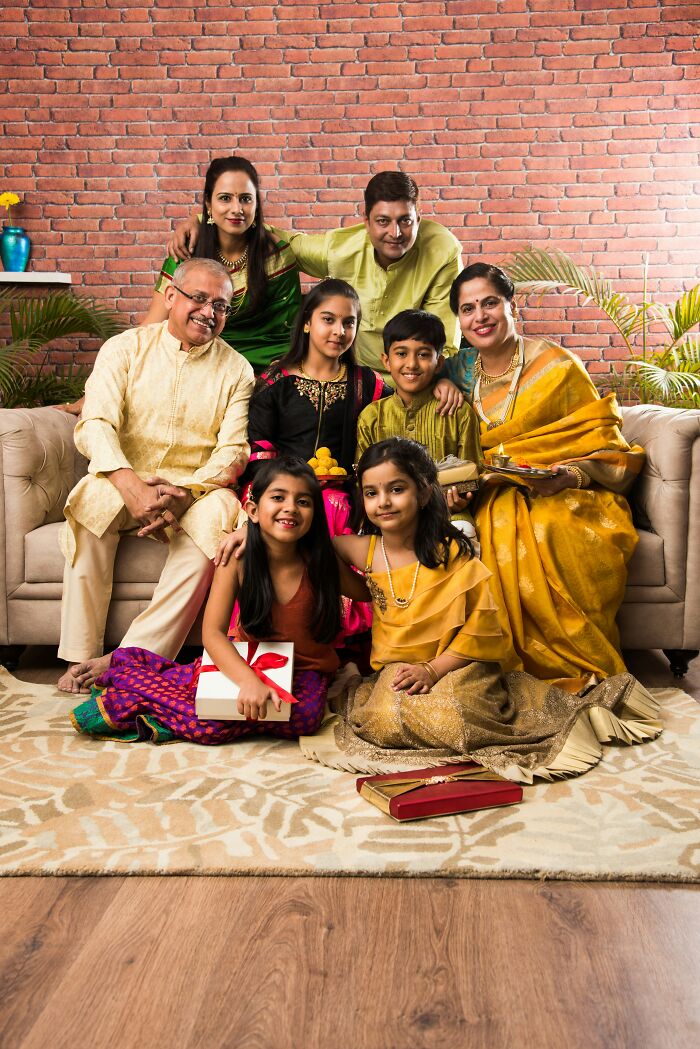 Staying with your parents throughout your life!
Staying with your parents throughout your life!
In India, it is perfectly normal for a male to stay with parents throughout his life- it is, infact, appreciated and indicate that the son is ‘fulfilling responsibilities of being a good son’
As parents take care of children when they are young, children are expected to reciprocate these actions when parents are old. As such, the system of ‘joint families’, wherein parents stay with their sons, daughters in law and grand children in quite common in India, more so in the villages. The tacit understanding is- “I take care of you now, and you will take care of me later.”
In the Indian joint-family household, the grandparents are very involved in raising the grandchildren. Families take decisions as a whole- Grandads and Grandmoms stay with the grankids and raise (spoil:)) them like they raised their own. Men and women can go to work without worrying about day care because of 'elders' at home.
Indians live in a ‘Collective society’ as opposed to an ‘Individual society’ prevalent in the west. Hence, money is also generally taken to be in a collective bank account, rather an individual’s personal bank account. As such, parents pay for their children’s education (even college and post graduation) and their weddings. On the other hand, as parents get older, children spend for their medical expenses (On a sidenote, the penetration of medical insurance is dismal in India. Indians pay for medical expenses out of their pockets)
However, you will rarely see a daughter live at her parents’ home after marriage with her husband as in the Indian culture doing so is quite taboo - they even have a term for it “ghar jamai” or house guest son-in-law.
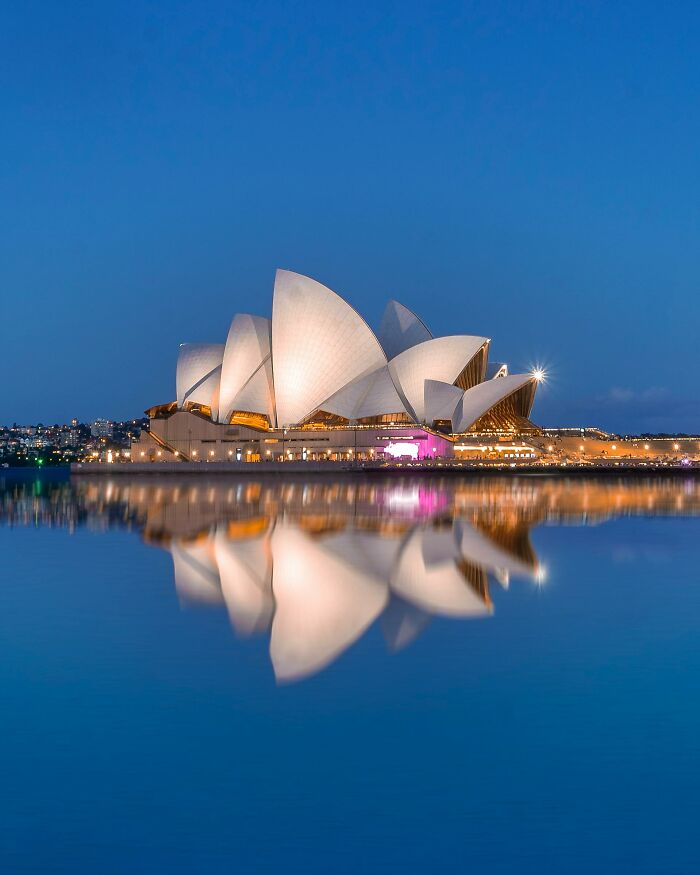 In Australia, the word c**t is “totally normal. ” It can be used as both a cuss and a term of endearment. If an Australian refers to you as a “ f*****g sick c**t,” that means you’re a really cool bloke. In how many other countries can you refer to a police-officer as a c**t and get away with it?
In Australia, the word c**t is “totally normal. ” It can be used as both a cuss and a term of endearment. If an Australian refers to you as a “ f*****g sick c**t,” that means you’re a really cool bloke. In how many other countries can you refer to a police-officer as a c**t and get away with it?
As an Aussie, no, it's not totally normal. I don't hear it all day long, and none of my family or friends use it as a' normal 'word. Alot of Australians find it offensive
 I'm talking about Bangladesh here.
I'm talking about Bangladesh here.
The University of Dhaka is the oldest and most prestigious university of the country. At the center of this place we have a building called TSC (teacher student center) which is basically a place for students to unwind.
Today, the 23rd of July was a rainy one, and a young couple shared a kiss in front of the place. A street photographer captured the scene.
It went viral
as a symbol of love and romance. For the most part.
However, other people came out of the bushes soon enough and began commenting things like:
* what's the difference between dogs then? Both have sex on the street
*western values are destroying the country
*this is a university not a brothel
*what are their parents doing? These girls should not be being educated
*what will my parents say if they come to DU( dhaka uni) & see this
And a lot more. I would like to say that this is Bangladesh & sadly this university, MY university is also known for: police attacks on students, student clashes, harassment by student political leaders on ordinary students, eve teasing of the worst kind, attacks on teachers and innocent people protesting the quota movement.
But almost none were as outrageous to the common dhaka university student who is probably spending his first year in the city after a childhood in the rural areas, than this photo.
Whoever said that thing about brothels. Intelligent although inaccurate as coitus happens in brothels. Unless they saw one of the two have coitus for money. No, of course it's not a brothel.
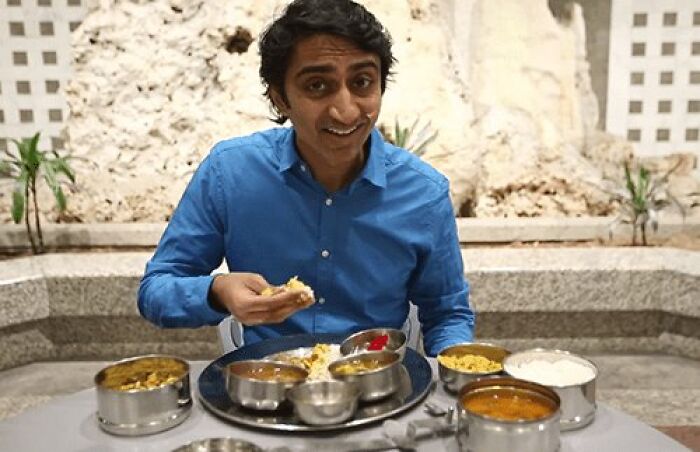 Eating food with hands. Roaming in the house without using slippers. Starting the day with a cup of tea. We love spicy. High traffic density. High percentage of vegetarians in our country. Democracy. Touching the feet of elders.
Eating food with hands. Roaming in the house without using slippers. Starting the day with a cup of tea. We love spicy. High traffic density. High percentage of vegetarians in our country. Democracy. Touching the feet of elders.
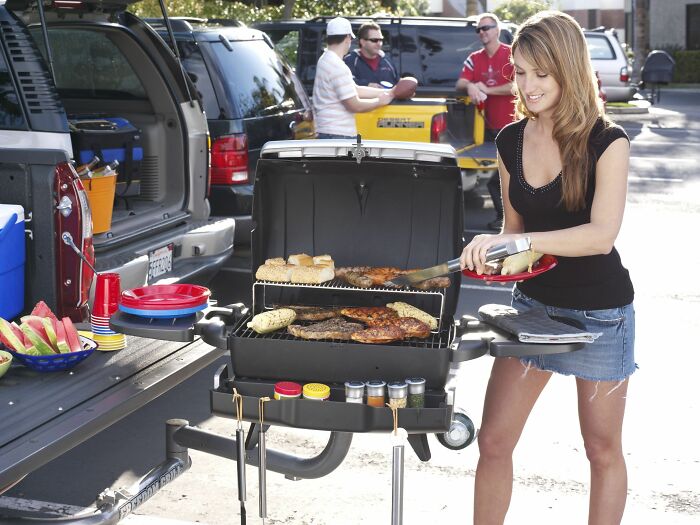 Pickup trucks are very popular in the US. So is watching American football and grilling food. One thing people in the US do that the rest of the world finds weird is combining things like these together. Welcome to the wonderful world of college football tailgating. Why wait until you get into the stadium to eat your burger when you can have it right in the parking lot? Even better when your truck has an attached grill! Sure, other countries have tailgating, but they don’t do it like this. The country that once brought you peanut butter and jelly in the same jar now gives you the full tailgating experience in one convenient package. Because of course we needed this! Who doesn’t need a grill attached to the back of their truck? Dragging a grill from the back of the truck is so old fashioned! Americans, mor...
Pickup trucks are very popular in the US. So is watching American football and grilling food. One thing people in the US do that the rest of the world finds weird is combining things like these together. Welcome to the wonderful world of college football tailgating. Why wait until you get into the stadium to eat your burger when you can have it right in the parking lot? Even better when your truck has an attached grill! Sure, other countries have tailgating, but they don’t do it like this. The country that once brought you peanut butter and jelly in the same jar now gives you the full tailgating experience in one convenient package. Because of course we needed this! Who doesn’t need a grill attached to the back of their truck? Dragging a grill from the back of the truck is so old fashioned! Americans, mor...
 In Singapore, people love Durian.
In Singapore, people love Durian.
Now, let me be clear, there are only two teams in this, either you love it, or you don’t. But most Singaporeans I know love this. Heck we even have a building designed to look like this.
But take this fruit outside of South East Asia? God have mercy on you, as the wrath of everyone staring daggers at you. Not just for the looks (I mean, what’s up with that guy carrying this weird green spiky ball everywhere), but also the smell. Oh god that smell, it’s like something large died inside that bag, a smell so bad that if your nose could, it would vacate its position on your face and run screaming in the opposite direction of this pungent fruit.
The smell is so infamous , even the countries which love it bans its presence on public transport. But anyway, I digress. Most foreigners who come here would give a strange look to you if you started eating this fruit in front of them. But hey, their loss right?
When I was living in China I learnt that they were obsessed with durian too (idk if it’s throughout the country or just where I was). You get vendors on the side of the road selling durian stacked high on a cart which you often smell before you see. You also get durian pizza, durian ice cream, etc. Once I excitedly bought an expensive box of fries with cheese sauce from a fancy new restaurant. One bite dipped in the sauce and I realised it was a durian sauce. Sigh!
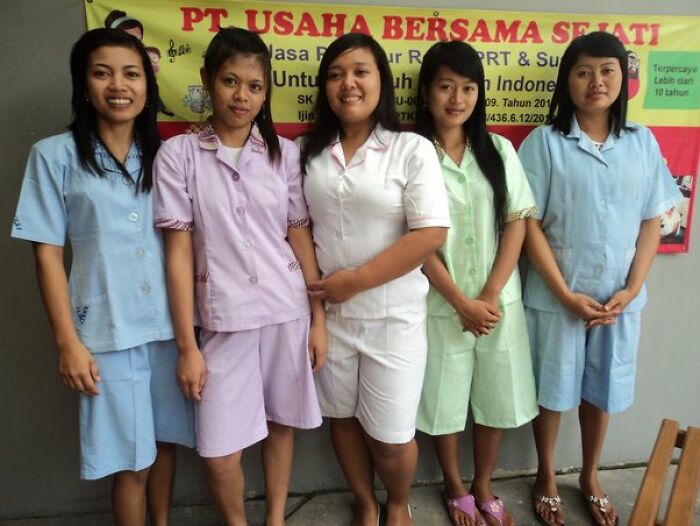 Indonesia
Indonesia
I knew an Indonesian family who brought their long-serving maid to Australia to take care of the kids and the house. You can imagine the reactions from their Australian friends, who thought they were “lucky” but I gathered they meant “crazy”. Even by Indonesian standard that is pretty crazy.
The thing is, maid service is very popular in Indonesia.
Maids are after all working professionals, but in reality they are regarded as an extra member of the family.
It is common for Indonesians to have a spare room in their house called ‘kamar pembantu’ (the maids room).
It is a common sight to see families bring their maids to shopping malls or eat at the same tables in restaurants, even in high end outlets.
It is so common that you will probably be greeted by the maid at the gate when visiting an Indonesian house.
Maid service is not exclusive to wealthy families.
Here in Bali, many Indonesian families bring their maid on vacations. I have seen maids taking care of families in beach clubs or resorts.
Maids are a well respected member of the family, I have known several maids whose lives were transformed for the better because their bosses took notice on their hard work. In fact, one maid I know has a daughter who now works and has a family in Australia.
But maids have some of the most demanding jobs due to their 24/7 working days. Physical and sexual abuse are still prevalent problems among the maid community and to some extent, stories of murder and violence are reoccurring headlines in the local newspapers.
I can predict that demand for maids will surge in the future mainly because of young families where both parents have busy working schedules.
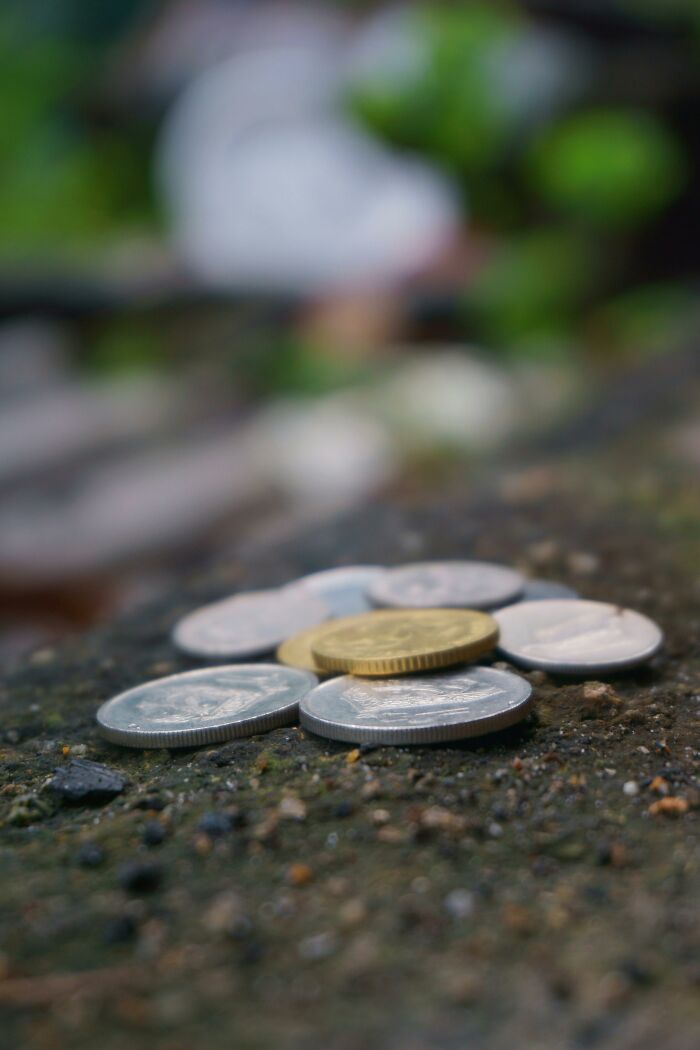 During a foreign trip, I had a colleague, a US national, who took me around his city.
During a foreign trip, I had a colleague, a US national, who took me around his city.
We were at a food counter and I was paying for the food items, when a penny dropped from my wallet. Being a religious person, I immediately took it up, touched it on my forehead and put it back.
Then, the mocking begins -
Him, with wierd smile - I have seen this before, why do you guys do that?
Me - We consider that money is God, infact a Goddess, and letting it fell down was a disrespect to it. While touching it on my forehead, I asked for a forgiveness.
Him, condescendingly - If money is God, can I worship it to get more of it? Will I get Indian money or US dollars?
Me - Yes, by worshipping God of work, that is by working more, you will get more money. You see that we have Gods for everything.
Him, trying to act smarter - Then what is a purpose of money God?
Me - Not only for money, but we have Gods for all animals and objects around us. That makes us respect every being and thing around us, and in turn we become a better person.
I mockingly continued….
And after becoming a better person, we go on to become CXO's of all the major US mnc's.
He was lost on words, probably trying to come up with a more wittier answer, but gave up after few seconds.
Probably, our religious activities are weird for rest of the world.
 People carrying guns over their shoulders. TV shows about obese kids with weird names. Deep-fried butter. And… Having a reality TV star as president. I'll let you guess what country I'm from. Edit: This satirical answer is not a full representation of America. To be clear, 100% of America is NOT deep-fried butter. This answer is not America-bashing.
People carrying guns over their shoulders. TV shows about obese kids with weird names. Deep-fried butter. And… Having a reality TV star as president. I'll let you guess what country I'm from. Edit: This satirical answer is not a full representation of America. To be clear, 100% of America is NOT deep-fried butter. This answer is not America-bashing.
 There was a news related to Japan that Japan keeps a train running just for a girl. This headlines attracted the attention of media and social media of many countries. This thing was weird for the world, because it shows that how Japan as a nation, serious about its children and their future. People are praising Japan authorities for making education a top priority.
There was a news related to Japan that Japan keeps a train running just for a girl. This headlines attracted the attention of media and social media of many countries. This thing was weird for the world, because it shows that how Japan as a nation, serious about its children and their future. People are praising Japan authorities for making education a top priority.
But if I talk about my country India, then it is a normal thing. Japan runs a train for a kid only, but in India, we are running a political party for a kid to make him a Prime Minister.
Though no media house of world talking about it because such things are normal in our country.
In Ireland we don't drink nearly as much as people think. Except Tea! Ireland drinks more tea per capita than any other nation, except Turkiye.
Tea is the answer to EVERTHING! Currently drinking my 8th cup of the day and just put on a fresh pot ;D
Load More Replies...Some of these were to long and to many items in one post. Posters need to keep to one or two items per post. Some of these I started to read than realize how long they were and quit reading that post and went onto the next story.
I wish I could be more positive about America. I guess even though I don't have insurance and can't afford medical I can easily find a way to get an antibiotic if needed. But I'd die of cancer as I couldnt afford the treatment. I love thrift stores on sale days. Saves me money and I get things I need. I'm grateful for those. I'm not very happy and I suffer. I'm happy I'm free of any religious ☺️ beliefs or obligations especially how women are treated in other parts of the world. But without access to healthcare. . I'm utterly miserable mentally and physically. It shouldn't cost $850 a month to be added to my husband's health insurance from his work. Ive been to some parts of Mexico where its very different and very poor. So I try to remain grateful 🙏 with what I do have.
Yet Mexico scores higher, a 7.0, on the life ladder compared to 6.52 in the United States. They are poorer, have a more corrupt government (watch this space with Trump...) but Mexico scores higher on things like support from family and friends and freedoms to make their own choices. I know that goes against the accepted view when there is the influx of people from there to the US but, again, they're making that choice when people in the US probably feel stuck with where they are and what they can do. It's a freedom of sorts.
Load More Replies...South Africa - everyone is really friendly. We make eye contact with everyone on the street, in shops, whatever. If you're outside taking the bin out in the morning & someone walks past on the way to get a taxi or walking their dog, you say good morning and even ask how they are. Huge disparity in living standards, but everyone is still friendly. People may live in a shack but they will have a satellite dish attached so they can watch DSTV. It's not common for people who live in urban areas - like Jozi and its environs, or Durban and it's outskirts, etc - to not be racist at all. It's more the people who haven't met those of other colours who have weird racist ideas (and some Boomers here who still don't seem to grasp that everyone is the same under the skin). Everybody loves samoosas (those triangular Indian pie things) and bunny chow (curry inside hollowed-out bread - usually lamb, beef or chicken - no bunnies involved). Everybody loves pap (pronounced like 'pup' as in a small dog)!
In Ireland we don't drink nearly as much as people think. Except Tea! Ireland drinks more tea per capita than any other nation, except Turkiye.
Tea is the answer to EVERTHING! Currently drinking my 8th cup of the day and just put on a fresh pot ;D
Load More Replies...Some of these were to long and to many items in one post. Posters need to keep to one or two items per post. Some of these I started to read than realize how long they were and quit reading that post and went onto the next story.
I wish I could be more positive about America. I guess even though I don't have insurance and can't afford medical I can easily find a way to get an antibiotic if needed. But I'd die of cancer as I couldnt afford the treatment. I love thrift stores on sale days. Saves me money and I get things I need. I'm grateful for those. I'm not very happy and I suffer. I'm happy I'm free of any religious ☺️ beliefs or obligations especially how women are treated in other parts of the world. But without access to healthcare. . I'm utterly miserable mentally and physically. It shouldn't cost $850 a month to be added to my husband's health insurance from his work. Ive been to some parts of Mexico where its very different and very poor. So I try to remain grateful 🙏 with what I do have.
Yet Mexico scores higher, a 7.0, on the life ladder compared to 6.52 in the United States. They are poorer, have a more corrupt government (watch this space with Trump...) but Mexico scores higher on things like support from family and friends and freedoms to make their own choices. I know that goes against the accepted view when there is the influx of people from there to the US but, again, they're making that choice when people in the US probably feel stuck with where they are and what they can do. It's a freedom of sorts.
Load More Replies...South Africa - everyone is really friendly. We make eye contact with everyone on the street, in shops, whatever. If you're outside taking the bin out in the morning & someone walks past on the way to get a taxi or walking their dog, you say good morning and even ask how they are. Huge disparity in living standards, but everyone is still friendly. People may live in a shack but they will have a satellite dish attached so they can watch DSTV. It's not common for people who live in urban areas - like Jozi and its environs, or Durban and it's outskirts, etc - to not be racist at all. It's more the people who haven't met those of other colours who have weird racist ideas (and some Boomers here who still don't seem to grasp that everyone is the same under the skin). Everybody loves samoosas (those triangular Indian pie things) and bunny chow (curry inside hollowed-out bread - usually lamb, beef or chicken - no bunnies involved). Everybody loves pap (pronounced like 'pup' as in a small dog)!

 Dark Mode
Dark Mode 

 No fees, cancel anytime
No fees, cancel anytime 


